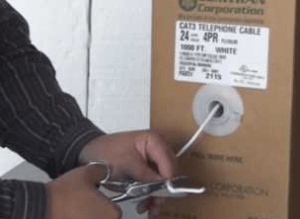
The Public Interest Advocacy Centre just released a report that found deregulation in Canada's telecommunications marketplace delivered most of the benefits to providers, leaving consumers holding the higher bill.
Four years after Canada deregulated its telecommunications industry with the promise it would bring competition, better service and lower prices, Canadian consumers are instead paying too much for broadband service that delivers too little.
That is the conclusion of a new report from the Public Interest Advocacy Centre, a non-profit consumer protection organization that compared provider promises with the bills ordinary Canadians ultimately pay for their Internet service.
Michael Janigan, the report’s author told CBC News that deregulation has brought “super-normal” profits for Bell, Telus and Rogers — among Canada’s largest telecom companies — while those same providers continue to increase prices and, in some cases, reduce the amount of broadband usage customers can access before overlimit fees kick in.
“We still have three big players with over 90 per cent of the market, and they’re pretty fat and happy,” Janigan said in an interview with CBC News. “We’re still seeing the incredible clout of the big telcos in relation to their ability to swing competition in their favor.”
Bell, Canada’s largest telecom company, stands to gain even more power over the broadband marketplace with a ruling from Canada’s telecommunications authority that has direct implications for Canada’s independent service provider market. Most third party providers obtain their Internet connectivity from Bell at wholesale pricing. Thanks to a now-approved-request from Bell to charge wholesale customers usage-based pricing, providers are now forced to pass along those artificially high prices to Canadian consumers.
“The days of unlimited Internet service are about to become extinct in Canada,” says Stop the Cap! reader Giles in Trois-Rivières, Quebec. “How surprised can you be that the company that sells access to competitors has managed to find a way to price that competition out of business.”
For one such competitor, Primus, the effect of Bell’s usage-based pricing will have an immediate impact on their customers’ monthly bills.
The company is now notifying customers that effective Feb. 1, the unlimited service plans that appealed to those opposed to usage-limited broadband will be now limited to just 25GB of usage per month. Primus directly implicated both Bell and the the Canadian Radio-television and Telecommunications Commission (CRTC) for the pricing changes.
Those who exceed the limit face overlimit fees of $2.00 per gigabyte, up to a maximum of $60 per month.

Here today, gone tomorrow: Primus is discontinuing its unlimited use services. Effective Feb. 1, overlimit fees of $2/GB kick in after just 25GB of usage.
Those limits could put Primus at a competitive disadvantage with larger providers delivering lower cost plans with higher usage allowances.
“Why would you still be a Primus customer after this,” asks Giles.
Primus will not be alone among third party DSL service providers — almost all will be forced to adopt similar pricing. The result? More expensive service for Canadian broadband customers, and major troubles for third party competitors whose new pricing could turn customers away.
The price increase is a direct result of a recent decision by the Canadian Radio-television and Telecommunications Commission (CRTC) to approve Bell Canada’s request to introduce Usage Based Billing on wholesale Internet services. Over the last four years, critics charge the CRTC with abandoning its watchdog role to protect Canadian consumers from unfair and uncompetitive practices and kowtowing to the interests of large telecom companies.
“In 2006 and 2007, the government stepped in to tell the CRTC to deregulate as a priority and to deregulate local telephone service faster promising better deals for consumers. As a our report notes, this did not happen despite all the hype”, said Janigan, author of the report, Waiting for the Dream, The Consumer Brief for Telecom Reform 2010.
In fact, the report concludes that Canada’s performance in telecommunications services such as broadband and wireless has been less than impressive, and the results for customers of cable and satellite services from deregulation of basic service has been the opposite of what should be expected in competitive markets.
“It is one thing to try a course of action that doesn’t work out: it is another to ignore the results and simply try more of the same,” said Janigan. “It doesn’t now make sense to have a government Policy Direction in place that hampers both competition and consumer protection”:
This report concludes that the failure of the regulatory reform of the last two decades to deliver the goods for ordinary residential consumers is not one that has its roots in theory, but in practice. Here, the interests of powerful stakeholders have affected the service landscape. In the same way that incumbent players used their political and economic influence and regulatory capture to get their way in the monopoly era of regulation, the winners have used the market- based system to their advantage. Neither regulation nor deregulation will engineer a thriving telecommunications industry producing innovative and efficient products and services with resultant economic growth for Canada if the decision making processes for each are skewed by conditions and assumptions that favour some stakeholders over others.
Most importantly, the governance and regulation of the telecommunications industry in Canada must respond to results. For the most part, the restructuring of telecommunications has been guided by untested economic theories, largely provided by experts engaged by the largest stakeholders. The relatively poor performance of telecommunications service for ordinary consumers should have long ago engendered a review of the regulatory framework and market structure that is producing the same. In the last five years, the only acknowledged measure of success has been how fast telecommunications services have been deregulated with predictable market results.
The solution is not a return to old regulation but new models. First of all, there are a variety of consumer issues associated with basic rights for information, quality of service, security of service, disconnections, privacy etc. that should be met by all carriers whether they are incumbent or not. Basic service, obligations to serve, complaints resolution, and burdens of service in uneconomic areas have to be in place for all across the board. The best way to ensure that this occurs is for mandatory licensing for all carriers, with appropriate codes of conduct and enforcement with meaningful force in the form of administrative monetary penalties. The Telecommunications Act should be amended to reflect these improvements.
Interconnection with essential telecommunications facilities should be available for competitors at rates that are fair to users and suppliers. We cannot let abstruse theories supposing innovation and duplication in the absence of access to govern this important issue.


 Subscribe
Subscribe






